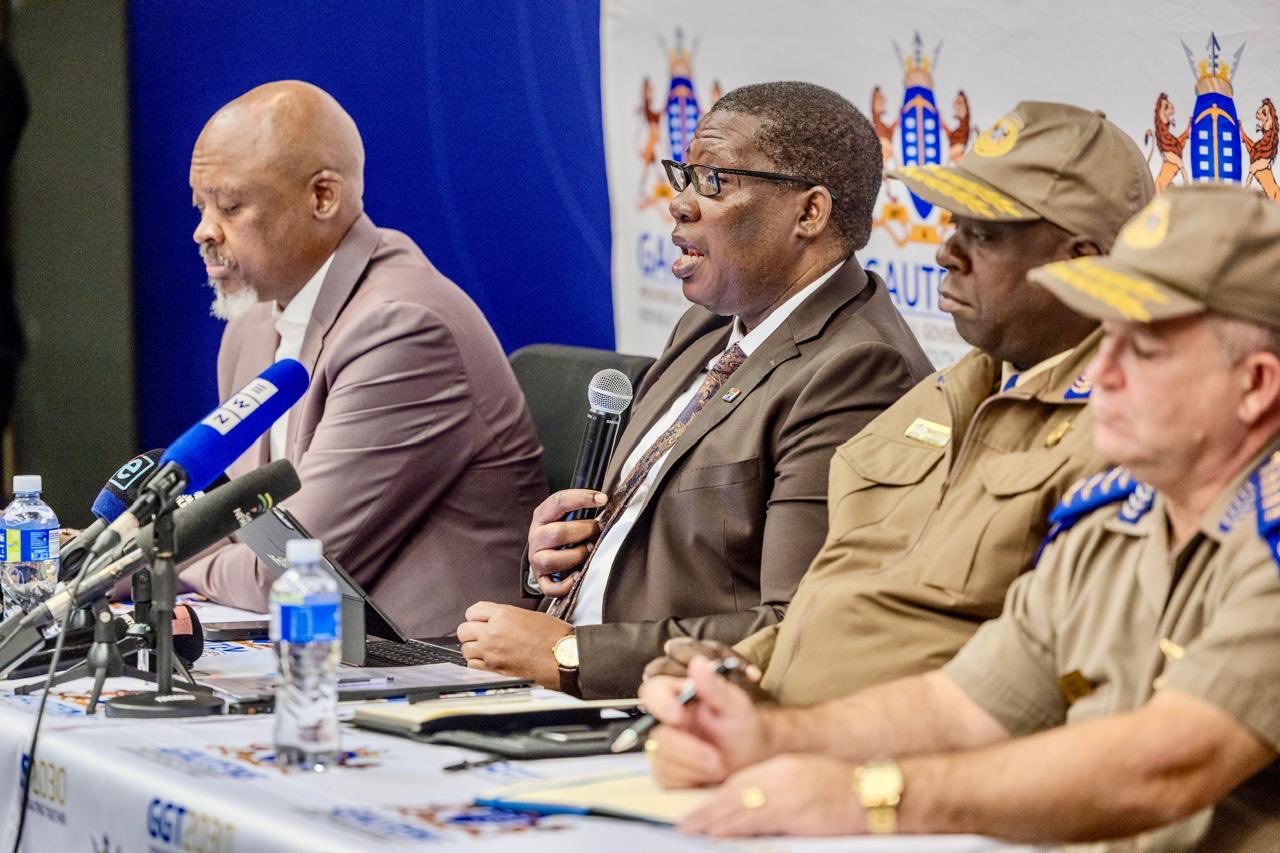News
Gauteng Defends AmaPanyaza Wardens as Lawful, Strategic Move to Boost Public Safety

Gauteng Stands Firm on AmaPanyaza Programme
The Gauteng provincial government has pushed back against critics of the AmaPanyaza programme, defending its Crime Prevention and Traffic Wardens as a legal and strategic initiative aimed at bolstering community safety, not replacing the South African Police Service (SAPS).
Spokesperson Elijah Mhlanga described the programme as a “lawfully audacious initiative” to address systemic policing gaps that have often forced SAPS into reactive modes.
“The motive was never to replace the South African Police Service, but to pragmatically address a systemic problem,” Mhlanga said, calling claims of a parallel police force “false and politically motivated.”
Public Protector Report Sparks Debate
The Public Protector, Kholeka Gcaleka, found that the initial deployment of Crime Prevention Wardens was irregular and unlawful, citing the province’s lack of legislative authority to perform policing functions. The report recommended reclassifying the wardens as traffic officers within 180 days, ensuring that recruitment and training meet constitutional and legislative standards.
Despite these findings, Gauteng insists the initiative has always aimed to enhance public safety, not undermine the law. The province also clarified that applications for peace-officer status were redirected, not rejected, resulting in the reclassification from Crime Prevention Wardens to Traffic Wardens.
“This is a strategic adjustment, not a retreat,” Mhlanga said.
Integration and Training Underway
Premier Panyaza Lesufi confirmed that the reclassification and training process began over a year ago, with wardens being trained through 13 traffic colleges under the NQF Level 4 Traffic Officer course. Discussions with the Road Traffic Management Corporation (RTMC) aim to provide further training.
Qualified wardens will join the provincial traffic services, while others will be redeployed to municipal by-law enforcement or security roles. The government described this phased transition as an investment in personnel and public safety rather than a disbandment.
“The ongoing process is a strategic restructuring and formal integration – not a disbandment,” the province stated.
Political Reactions and Public Debate
The Public Protector’s report has reignited political tensions in Gauteng. The Democratic Alliance (DA) plans to table a motion of no confidence in Lesufi, claiming the programme overstepped constitutional authority. ActionSA also criticised AmaPanyaza, describing it as a failure to uphold the law while tackling crime.
Social media reflects a mix of support and concern: many residents praise the increased visible policing in townships and informal settlements, while others question legality and long-term accountability.
“We have always acted within the Constitution,” Mhlanga stressed.
“Our commitment is to build a safer Gauteng in partnership with all levels of government.”
Background: The AmaPanyaza Programme
Launched in 2023, AmaPanyaza aimed to strengthen policing in high-crime areas, informal settlements, and hostels. Early deployment drew praise for improved community visibility but faced criticism for unclear legal authority and inconsistent training standards.
The Gauteng government has committed to completing the 180-day realignment as recommended by the Public Protector, ensuring that wardens operate professionally, accountably, and with full legal authority.
This move marks a significant step in Gauteng’s ongoing efforts to supplement SAPS and enhance public safety while addressing criticisms of legality and governance.
{Source: IOL}
Follow Joburg ETC on Facebook, Twitter , TikTok and Instagram
For more News in Johannesburg, visit joburgetc.com



























